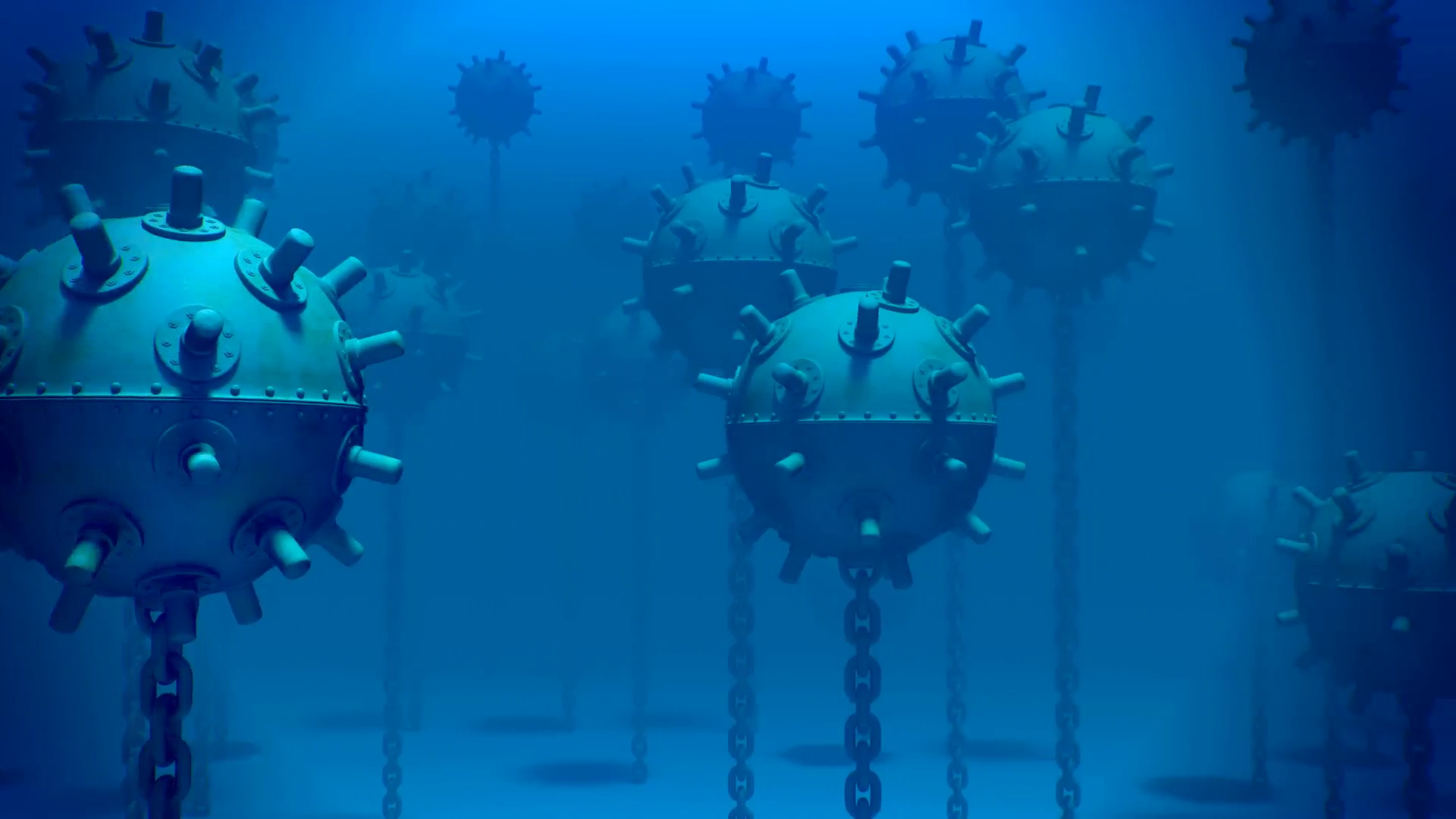Reading science fiction nurtures hope that there is a better future. While conflict, catastrophe, and climate change feature in many of these novels and movies, much science fiction is highly optimistic in nature…However, reading science fiction also allows us to consider a variety of negative potential futures…it is the first step in ensuring that they do not come to pass.
#Reviewing The Turn of the Tide
Information, Interdependence, and Friction in Strategy
Information has a critical place in warfare. It is at once the source of both intelligence and the fog of war. Information is a nebulous infinite set from which we draw our frameworks, biases, and facts. The growing surfeit of data has led to proclamations that “data is the new oil” and even the idea that the information extracted from this data constitutes a kind of currency. At the tactical level, the intelligence born out of information preparation certainly constitutes a means of transacting operations. Yet beyond the battlefield, and into the realm of grand strategy, the utility of information can be uncertain.
Great Strategic Rivalries: The Return of Geopolitics
One cannot go far wrong by employing Thucydides as a foundation for any model, as General George Marshall reminded us. But Marshall surely did not mean for policymakers to end their studies with the Peloponnesian War. Rather, Thucydides is but a starting point for a much wider historical study aimed at revealing the true nature of strategic rivalries and the character of their ensuing conflicts.
Corbett’s Relevance to the Modern Strategic Thinker
Although some have asked for renewed interpretation and analysis of the meaning of sea power, maritime strategy, and naval power, they have often ignored that this has often revisited challenges and questions that have been raised before. Many of these questions Corbett, American naval thinker Alfred Mahan, and the founding father of the scientific study of naval history, Prof John Laughton, have tackled repeatedly in the past.
#Reviewing Oceans Ventured
Secretary Lehman, awaiting the declassification of several key Cold War documents, recently published Oceans Ventured, meticulously documenting the Navy’s aggressive operations in the 1980s. Secretary Lehman’s readily accessible book tells the story as if you were having a casual conversation at the Black Pearl, listening to the reminiscences and sea stories of a well-traveled naval officer.
The Imperative of Waging Techno-Strategic War: Looking Back at #TechnologyInnovation
These essays represent ongoing efforts at the Naval Postgraduate School’s Defense Analysis Department to investigate operationally relevant emerging technology. These efforts must continue if defense officials are to create a competitive innovation landscape across the services. Producing a collaborative ecosystem that fuses emerging technology with multifaceted operational challenges is an excellent start.
Resistance to Innovation in NATO
A Marketplace for Multidomain Innovation
Experimentation resources are hard to find as they are widely and obscurely scattered throughout the Department of Defense. They are all but invisible, and discovery learning, while necessary, is not sufficient for the scale on which progress is needed. Implementing a digital Department of Defense exchange for experimentation funding creates a conduit that moves information, provides a price, and enables prompt brokerage of the requisite transaction in order to meet the innovation demands of a multidomain battlefield.
Untangling the Government's Innovation Architecture
This analysis does not seek to prove that any specific organization is superior to the other, rather it provides an initial framework to begin organizing the myriad of technological organizations that support the United States Government. Without specific technology case studies, a determination cannot be made whether any individual factor or category determines the success of the organization. However, this framework provides an initial understanding of these factors to help a potential customer leverage these organizations for rapid development and implementation of new technologies.
Technology Innovation Is Great, But Strategy Is Better
What’s missing is a strategy that accounts for latent and emerging technology-enabled threats and matches them with prioritized military requirements. Such a strategy would include an optimized mix of new and old technologies designed to exploit adversary vulnerabilities and minimize American weaknesses. There is reason for optimism in America’s potential to leverage technology for its own security as long as leaders make the hard choices around national priorities that will allow planners and strategists to engage technology with focus and purpose.
Introducing #TechnologyInnovation: A Strategy Bridge Series
The U.S. military has enjoyed a comfortable lead in the race for new battlefield technology since the end of World War II. In recent years, however, the rate of technology change has challenged the U.S. military’s ability to remain strategically superior to near peers while providing the warfighter with nimble and fiscally sustainable technology.
#Reviewing Strategy Strikes Back
Even without a lifelong appreciation for all things Star Wars, anyone with a basic understanding of the movies and their stories and an interest in better understanding modern military conflict will benefit greatly from reading Strategy Strikes Back. I have not found another collection of essays where the authors use their superior imaginations to explain and simplify complex topics so well.
The Strategy Delusion
At a time when the U.S. maintains a significant military advantage over all other countries, it is seductive to think that simply applying those resources to any and all problems will cause success, but it will not. As a country, the U.S. can and must do better. One small step toward improving American strategic competence is to explicitly articulate our strategies as theories of success based on clear conceptualization of all variables and causal mechanisms.
Sea Mines in Amphibious Operations
It is vital that alongside expensive amphibious assault ships a navy invests in mine warfare equipment and training, otherwise, the procurement of an amphibious capability will have been in vain. Naval mines are not going anywhere soon...nor will amphibious operations if they lack the ability to deal with sea mines.
Nuclear Constraints and Concepts of Future Warfare
Since the United States’ near-peer adversaries possess nuclear weapons, the U.S. Army needs to prepare for small, politically constrained, ambiguous, limited conflict. Without a reorientation on the future, the U.S. Army doctrine and concepts are not useful and potentially limit policymakers’ options, or worse, risk accidental nuclear escalation.
Clausewitz’s Library: Strategy, Politics, and Poetry
#Reviewing Strategy and the Sea: Essays in Honour of John B. Hattendorf
To say there is something here for everyone would be something of an understatement. There is more than enough in the volume for naval strategists and historians in terms of scope, geographical region, and topic. But for a popular strategy audience this collection will be a hard slog, if not intimidating. This is a shame, because these essays have much to offer. So, if one can afford it, purchase the anthology, peruse the topics, and read. Otherwise, for the everyman strategist out there, go to your nearest college library and get it there. You will still be rewarded.
Chinese and Russian Defense Innovation, with American Characteristics? Military Innovation, Commercial Technologies, and Great Power Competition
While Russia and China are known for their lumbering civilian and military bureaucracies, both nations are nonetheless demonstrating that they can be nimble enough to accelerate certain technological developments, along with testing and evaluation. So far, both competitors have proven that they can take specific American elements and apply them to their own unique ecosystems. Nonetheless, using American-style institutional and procedural concepts is still a novel idea for the top-heavy ministries tasked with such breakthrough technological developments in both countries.
Shifting Landscape: The Evolution of By, With, and Through
Once exclusively the purview of unconventional warfare and special operations forces, by, with, and through has gone mainstream, but it is not yet found in joint doctrine for conventional warfare. The evolution of the phrase and its individual elements has increased the lack of clarity because of inconsistencies in messaging and understanding of the definitions, responsibilities, progression, and ultimate goal of the approach.





















